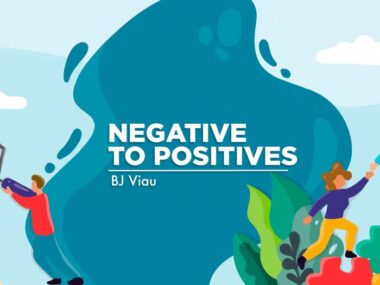Presymptomatic Disease Changes One’s View of Time, Patients Say
Written by |

Huntington’s disease patients who have not yet developed symptoms have a different relationship with time than otherwise-healthy individuals, according to a new study based on patient interviews.
The findings highlight a need for long-term psychological support for people with presymptomatic Huntington’s to help them develop proactive coping strategies and acceptance of an uncertain future, researchers said.
The study, “The experience of a sample of individuals in the United Kingdom living in the pre-manifest stage of Huntington’s disease: An interpretative phenomenological analysis,” was published in the Journal of Genetic Counseling.
Huntington’s is caused by mutations in the gene HTT. These mutations are present from birth, but Huntington’s symptoms typically don’t manifest until the latter decades of life, and the disease itself is not diagnosed until motor symptoms become apparent.
With increasing availability of genetic testing, it is possible for people to know that they will develop Huntington’s at some point in the future, years before they first start experiencing symptoms. Such individuals are said to be in a “premanifest” stage of disease.
Some research has looked at the psychological experience of people in the premanifest stage, but studies have typically focused on the immediate response to a genetic test — not the long-term impact of living with the knowledge of its results.
In the new study, researchers in the U.K. reported on themes that emerged during interviews with 10 people who had been living with known premanifest Huntington’s for at least one year. Among the interviewees, three were male and seven were female. The mean average age was 38, and mean time since genetic testing was five years. All of the patients were white British, and six had children.
The researchers specifically highlighted three key themes that emerged from the interviews, all of which related to the perception of time.
One major theme was the feeling of being limited by time, as if a countdown has started. One interviewee said that Huntington’s felt like “an unresolved threat just lurking in the background.”
As a consequence of feeling that time was limited, some interviewees reported substantial changes in lifestyle. For instance, one said she had switched careers out of a concern that her initial job, in events, was too active for her to do long term. Another compared navigating dating with premanifest Huntington’s as negotiating with “a ball and chain around your foot.”
Feelings of limited time were closely tied to feelings of anxiety, with persistent worries about when symptoms would start. As one interviewee said, “if you do things like you forget things or names or you put your purse in the fridge or whatever, it only takes a couple of things to happen over a period of time for you to start panicking and think ‘oh my god, is this it, is it starting?’”
The second major theme from the interviews concerned stalling time — distancing oneself from the future reality by focusing on the present, and holding on to hope that the future may not be as dark as it appears.
For instance, one interviewee reported telling her children that “by the time mummy is 70 there will definitely be a medicine out there.”
Hope, according to the researchers, was “a very tangible force” for these individuals, helping to keep them from being “paralyzed by fear” of Huntington’s.
“I guess it stood a chance of almost paralysing me knowing that it was happening or would happen … But I kind of overcame that knowing that, well you could waste a lot of time which is bad for everyone around you … I want to live my life with the view that I’m free from Huntington’s,” said an interviewee.
The third and final theme was the importance of making the most of the present moment, including staying positive and forming meaningful connections with other people.
“I need to put all my time and energy into positive things and positive people and doing good things and making a positive impact,” said one patient.
Several interviewees noted that the future is inherently uncertain. More than one pointed out the possibility they could be “hit by a bus” any day, highlighting the importance of living in the present moment.
As one interviewee said: “Life cannot get in the way anymore. You can’t be putting stuff off thinking I’ll do it later I’m too busy because there might not be a later.”
Collectively, these themes highlight that “the participants’ experience of knowing they will develop a chronic illness induced different relationships to time than are experienced by an otherwise healthy person,” the researchers concluded.
The team noted that the findings have important implications for genetic counselors who are helping care for people with a Huntington’s-causing mutation.
“It is important for genetic counselors to appreciate that salience of genetic risk is likely to differ according to zones of relevance over the course of an individual’s life, and to provide follow-up support in accordance with this,” the researchers wrote. “Supporting both those who are undergoing testing, as well as providing follow-up support, where necessary, should be an important component of psychological support.”


